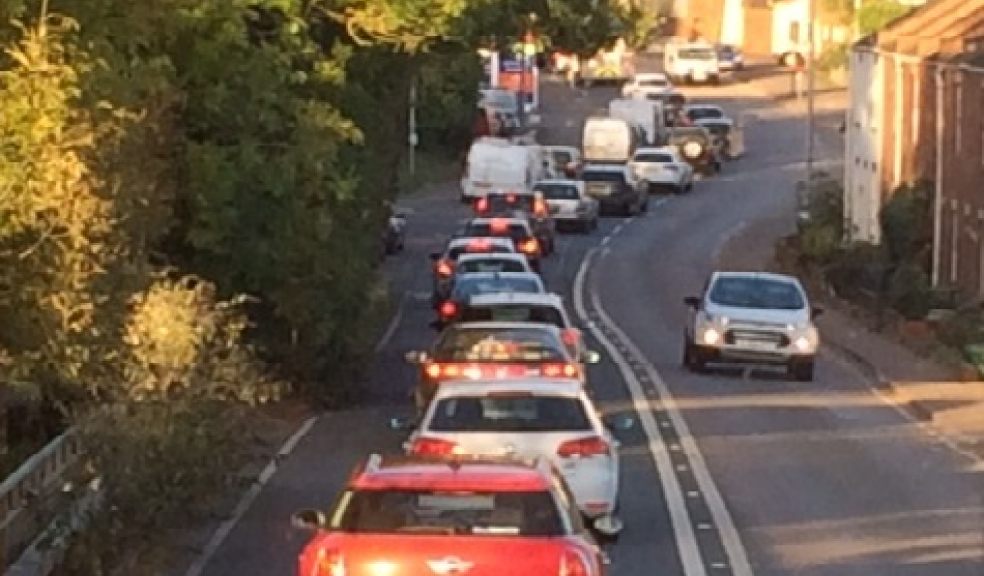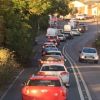
Moving Exeter into the future
Britain has no transport policy and nowhere more is this obvious than in Exeter. Our country has stop-start history of short-sightedness which has left us in the present mess, and which will need brave political decisions to address. Recent traffic congestion in and around the city is a symptom of this malaise, so where is the leadership needed to take us in a different direction?!
In short, we have adopted American-style poor planning practices in a country which is small, overcrowded and polluted. We have encouraged huge developments which depend on car access and road-based solutions, the latest of which are being constructed on the east of the city at the Science Park, Cranbrook, Skypark and elsewhere, and with Ikea only coming to add to the problem.
Developers continue to push for building developments; planners continue to give permission for these, accelerating the pressures on already inadequate infrastructure. The consequences for Exeter are poor air quality, longer delays, more unpleasant travel and longer-term economic uncertainty. Yet a city that grinds to a halt is a city that will be unhealthy, uneconomic and unhappy.
There are token gestures and rhetoric about staff travel plans, public transport links and talk about step changes in travel, but in reality these have been piecemeal and every week sees more and more traffic on the city’s routes – with the forecast to grow by a further 40% in the next 20 years.
More than 36,000 people commute into Exeter each day, and another 10,000 travel out of the city. Over 70% of these travellers use their cars. With the new developments scheduled there is a predicted traffic growth of 40% in the coming years, so as things stand the city’s road system will get worse not better.
Public transport is also increasing, and the opening of new stations and hopefully more trains is to be welcomed. But the likelihood is that the slightly improved local railways (‘Devon Metro’) will only carry about 5% of the commuting public.
The buses can take more passengers (maybe 12%-25%) but the bus network is severely constrained by not being segregated from the main traffic routes and so even more subjected to congestion delays. It is not surprising therefore with the current roadworks situation people are taking more than an hour for what should be a fifteen or twenty-minute journey.
The Park & Ride sites which were (reluctantly) introduced in the 1980s as a stepping stone to improved public transport have been successful at reducing some city centre traffic, but they have the dubious claim of providing better buses for those living outside Exeter than those living in the city. Their fares are cheaper, journey times shorter and the vehicles are more modern and more comfortable. Meanwhile, on the traditional city bus routes there are huge challenges with often inadequate buses, staff shortages and overcrowded streets. Add to this the new developments in Paris Street and the 2 year building period of a smaller bus station, and the position does not look good!
The reality is that we have a city that is saturated in cars. There are far too many on our confined roads and not addressing this matter means not solving our transport headaches. Excessive numbers of cars are bad for everyone, including drivers.
So what are the more immediate options for a more progressive and more fluid Exeter?
1. A rigorous clampdown on illegal driving (including non-taxed vehicles, driving over the limit, speeding, illicit use of mobile phones)
2. Congestion-charging (and ring-fencing money raised to support other modes of travel)
3. Staged workplace and out-of-town parking charges (with income also used to better other services and facilities)
4. Limited entry and car-free zones (restricting access to certain vehicles and at specific times)
5. Traffic-free streets and suburbs (expanding streets for people with markets and play spaces)
Fortunately, there is some good news. The numbers of cyclists in Exeter and the cycling network itself are expanding. Growth in community-led solutions such as Exeter Co-cars (car club), electric bike sharing, community rail initiatives, and demand-led response projects such as ring-and-ride are all examples of better practice. Even car-sharing has been growing in recent years.
But the real long-term solution lies in newer technological advances and an orbital public transport system. An innovative tracked network friendly to cyclists, pedestrians and motorists alike. What the city really needs to move forward is a serious study to develop an appropriate from of rapid-transit, which will involve segregated routes, greater reliability and cheaper fares. This is happening elsewhere. Why not in Exeter? Our city once pioneered a mini-bus revolution; why not now a real alternative that we could all be proud of and which marks Exeter as a place for the future, not stuck in the jams of the past!




















